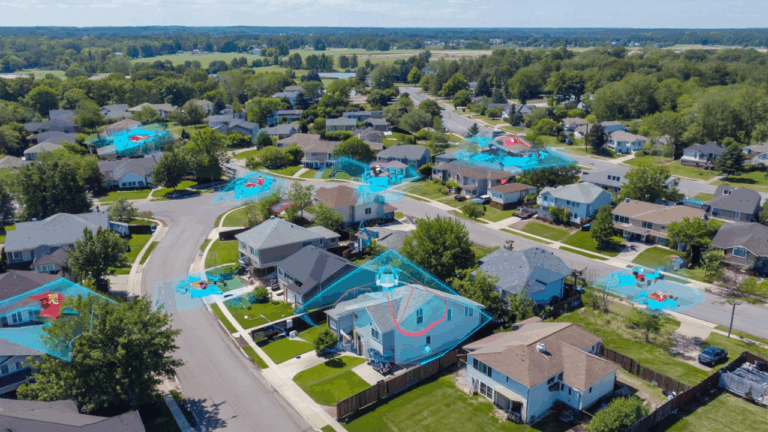
Machine Learning in Property Insurance
Machine Learning in Property Insurance: Transforming Risk Assessment and Claims Management
Introduction
In the rapidly evolving landscape of technology, machine learning (ML) has emerged as a transformative force across various industries, including property insurance. This sector, traditionally reliant on human expertise and historical data for risk assessment and claims processing, is increasingly embracing machine learning to enhance accuracy, efficiency, and customer satisfaction. As the property insurance market faces challenges such as climate change, urbanization, and economic fluctuations, the integration of machine learning offers innovative solutions that are reshaping the industry's future.

Key Points and Analysis
Machine learning, a subset of artificial intelligence (AI), involves the use of algorithms and statistical models to enable systems to learn from and make predictions or decisions based on data. In property insurance, ML is primarily leveraged for risk assessment, fraud detection, and claims management.
1.Risk Assessment
Traditionally, risk assessment in property insurance relies on historical data and actuarial tables. Machine learning enhances this process by analyzing large datasets, including real-time information from various sources such as satellite imagery, IoT devices, and social media. This data-driven approach allows insurers to assess risks with greater precision and tailor policies to individual clients, potentially reducing premiums for low-risk policyholders while ensuring adequate coverage for high-risk properties.
2. Fraud Detection
Insurance fraud is a significant challenge, costing the industry billions annually. Machine learning algorithms can detect patterns and anomalies in claims data, flagging potentially fraudulent activities for further investigation. By continuously learning from new data, ML models improve their fraud detection capabilities over time, reducing false positives and enhancing the accuracy of fraud identification.
3. Claims Management
The claims process in property insurance is often time-consuming and complex. Machine learning streamlines this process by automating routine tasks, such as document verification and damage assessment. For example, image recognition algorithms can evaluate property damage from photographs, expediting the settlement process and improving customer satisfaction.
Industry Impact and Applications
The integration of machine learning in property insurance is leading to significant industry-wide changes. Insurers are adopting predictive analytics to anticipate policyholder needs and optimize resource allocation. For instance, by analyzing weather patterns and historical claims data, insurers can predict potential claims spikes following natural disasters, allowing them to allocate resources more effectively and improve response times.
Moreover, the use of ML in customer engagement is transforming the insurance buying experience. Chatbots and virtual assistants powered by machine learning are providing personalized recommendations, guiding customers through coverage options, and answering queries in real-time, enhancing the overall customer experience.
Future Implications
As machine learning continues to evolve, its implications for the property insurance industry are profound. The ability of ML models to process vast amounts of data and generate insights in real-time will enable insurers to offer hyper-personalized policies, adjust premiums dynamically, and improve risk mitigation strategies. Additionally, advancements in natural language processing and computer vision will further automate and refine claims processing, reducing turnaround times and improving accuracy.
However, the widespread adoption of machine learning also raises challenges related to data privacy, security, and ethical considerations. Insurers must navigate these issues carefully, ensuring that data is collected and used responsibly while maintaining transparency with policyholders.

Conclusion
Machine learning is undeniably transforming the property insurance industry, offering innovative solutions to longstanding challenges in risk assessment, fraud detection, and claims management. By harnessing the power of data and advanced analytics, insurers can improve operational efficiency, enhance customer satisfaction, and better navigate the complexities of an ever-changing risk landscape. As the industry continues to embrace these technologies, the future of property insurance promises to be more resilient, customer-centric, and data-driven, paving the way for a new era of insurance innovation.
aecenas sollicitudin purus id leo vehicula lacinia quam vulputate dapibus fermentum metus, nec euismod nulla dapibus nasac metus nunc rabitur euntum




